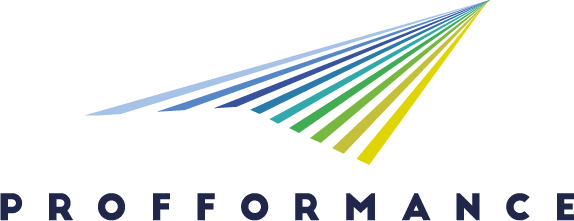ACT-COI – An Asynchronous Community of Inquiry
Building a Community of Inquiry in a fully asynchronous Master program by fostering student activity and interactivity
- 09 – Health and welfare
2. Innovative teaching and learning
- Student partnerships/engagement in the teaching and learning practice
- Online and offline cooperative and collaborative work – developing engaging dynamics in the learning process
- Innovative online and blended learning methods, engaging and participative hybrid learning organization
- Innovative methodology to keeping motivation and attention during online lectures
- Other:
100% asynchronous online learning, yet collaborative building of a Community of Inquiry for higher-order learning
Fostering student activation and interactivity in asynchronous online learning environments, where students never meet in person or via video, poses significant challenges. To address this, we developed a theory- and research-based activating and interactive learning environment for master students, enabling them to build a Community of Inquiry (CoI), which is essential for higher-order critical thinking, even when studying fully asynchronously. Our project contributes to SDG4. We successfully designed, piloted, and fully implemented a 100% asynchronous module on “Professional Project Management” (6 weeks, 6 ECTS) as part of the online master program “Health Information Management” (120 ECTS). Participants, all healthcare professionals (e.g., physicians, nurses, and computer scientists) from various countries (Germany, Austria, Switzerland, etc.), work collaboratively within this program while not meeting in person. The instructional design is grounded in socio-constructivism and student-centeredness, emphasizing the instructor’s role as a “learning coach” rather than an expert. Active learning and interactivity are promoted through tailored activities based on the concept of Etivities. Constructive alignment of learning objectives, learning tasks, and assessments forms the foundation of this concept. Individual learning paths are supported through a selection of optional Etivities. Etivities offer a structured framework for meaningful and interactive activities, including an activating title, spark/motivation, competence-oriented objectives, specific tasks with materials, communication expectations, additional resources, and the instructor’s guidance. Typical tasks involve getting to know each other, sharing experiences, analyzing case studies, comparing options, developing concepts, and presenting solutions. Etivities not only foster critical thinking but also require group communication and discussion. In summary, the module effectively established a Community of Inquiry among a diverse student group in a 100% asynchronous environment. Students performed well in competence-oriented assessments and evaluated the module highly. Graduates emphasized the applicability of the competencies in their professional roles.
Methodology
Tools, equipment, technology used
Outcomes and outputs, main results
Lessons learnt
Adaptability and sustainability of the best practice (for other institutions)
Promotion of best practice
Scope and impact
- Course/department level
- Faculty level
- Institutional level
- Cross-institutional level
- National level
- EU/EHEA/International level
6.1 Digitalization
- Outstanding, innovative, excellent practices of online / blended / hybrid learning
- Digital skills development and assessment both general and profession-related, embedded in course design, in teaching and assessment
Reasoning: 1. Tools like xMind, MS Project, and Kanban enhanced engagement and practical application, while the mobile-friendly design ensured flexibility. Moodle ensured structured, accessible content delivery with features like screen reader compatibility and customizable text. Bonus tasks with AI tools, such as ChatGPT, fostered exploration and critical thinking. 2. Online etivities emphasized cognitive, social, and teaching presence. Asynchronous discussions, collaborative online tasks, and peer feedback fostered a strong sense of community. 3. Students gained skills with tools like MS Project and Kanban, while AI-focused tasks developed ethical use and critical digital literacy. 4. Online assessments aligned with objectives, offering immediate feedback via self-tests and reflective tasks and deeper evaluation through summative methods.
6.2 Internationalization
- Outstanding practices of international online collaborative learning
Reasoning: Internationalization is a key feature of this module, demonstrated through outstanding practices in international online collaborative learning. German-speaking Students from diverse countries (mostly Germany, Austria, Switzerland, but also Brazil and Saudi-Arabia) collaborate asynchronously, engaging in discussions and joint projects that foster cross-cultural communication and global perspectives.
6.3 Inclusion and diversity, universal design
- Inclusive course design, universally designed divers activities to meet special students' needs
Reasoning: Our module exemplifies inclusive course design by leveraging Moodle's accessibility features, ensuring equitable access for all online learners. Additionally, the integration of diverse digital learning tools (text, video, podcast) allows students to tailor their learning experience to individual needs, promoting engagement and comprehension. This approach aligns with Universal Design for Learning (UDL) principles, fostering an inclusive and supportive educational environment.
6.4 Sustainability
- Teaching material contains profession related sustainability aspects
- Other:
Our fully online module eliminates the need for travel, reducing CO₂ emissions, and minimizes paper use through digital materials, conserving resources and reducing waste.
Reasoning: In week 6, students present on sustainability in project management, fostering discussions on its relevance to their field. These practices combine quality education with a strong contribution to sustainability.
3.3 Public contact datas
| Name | Email address | Website |
|---|---|---|
| Elske Ammenwerth | elske.ammenwerth@umit-tirol.at | http://www.umit-tirol.at/him |

